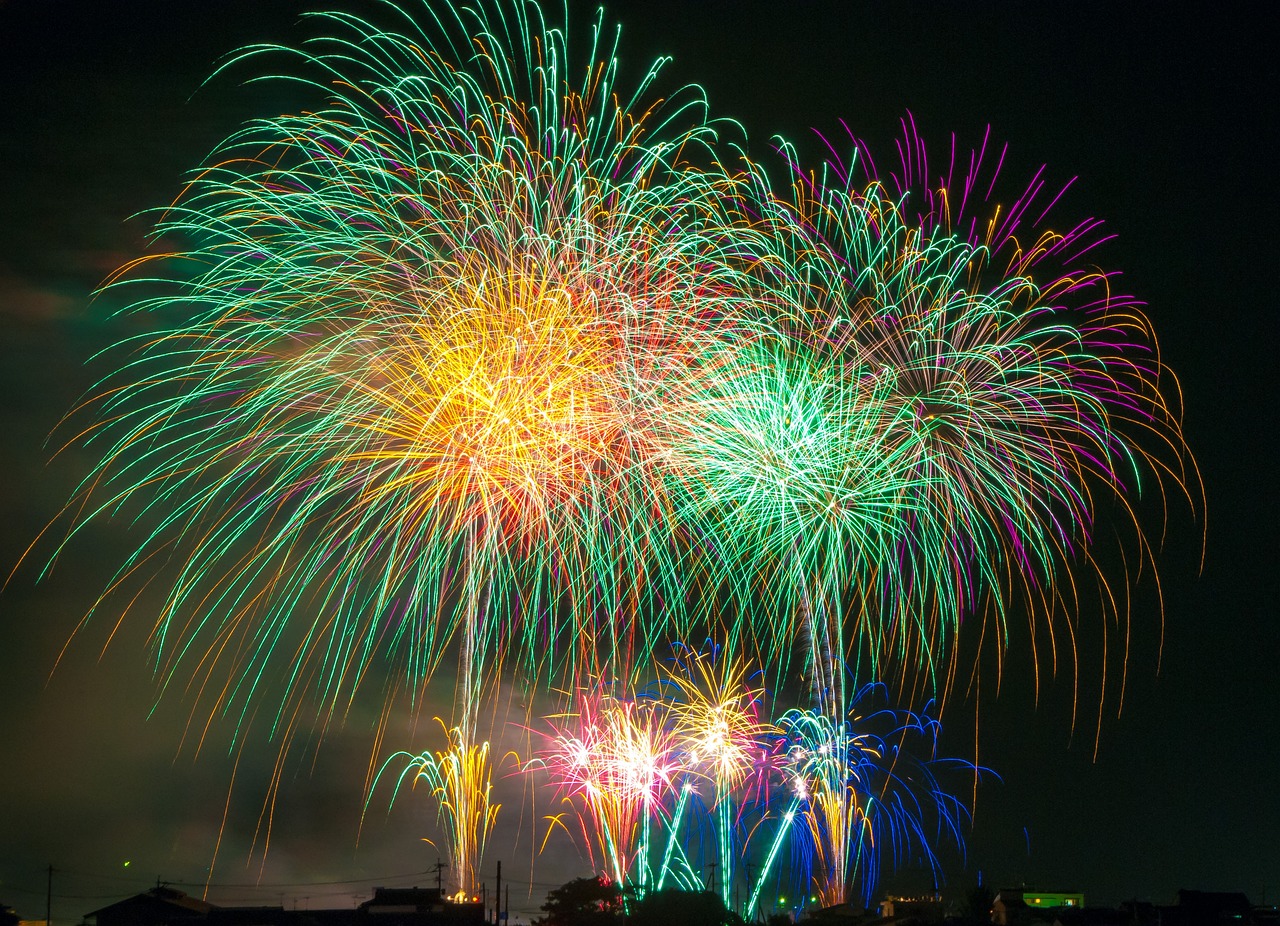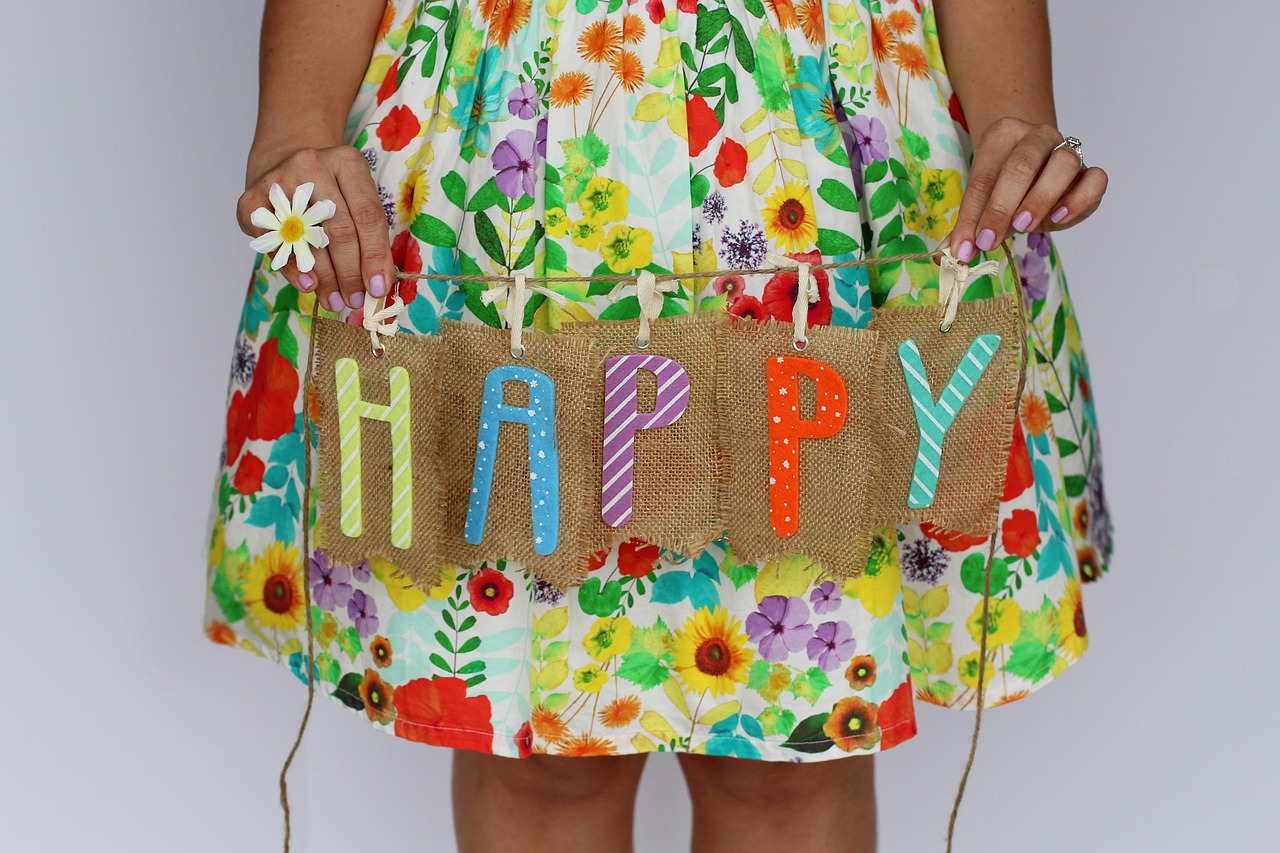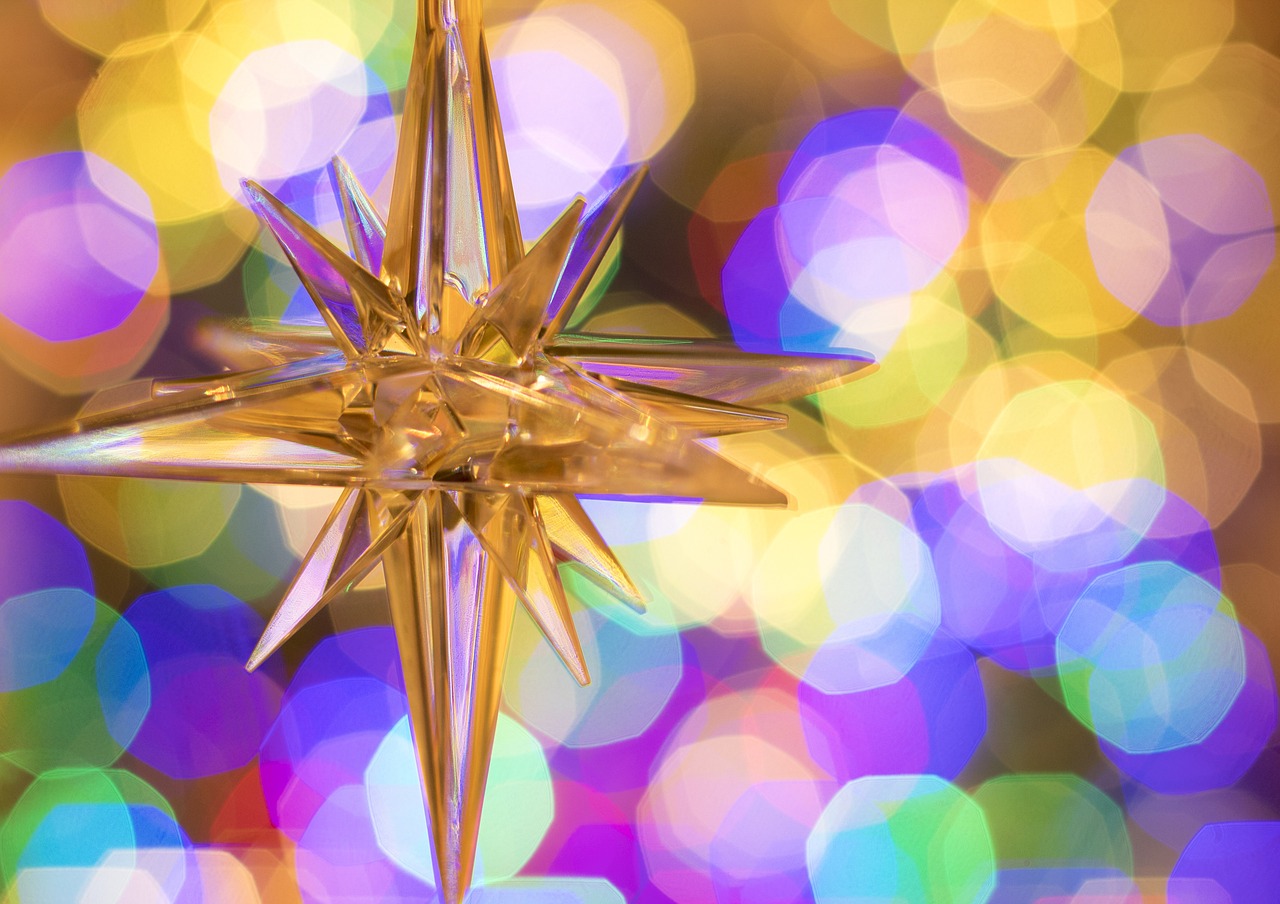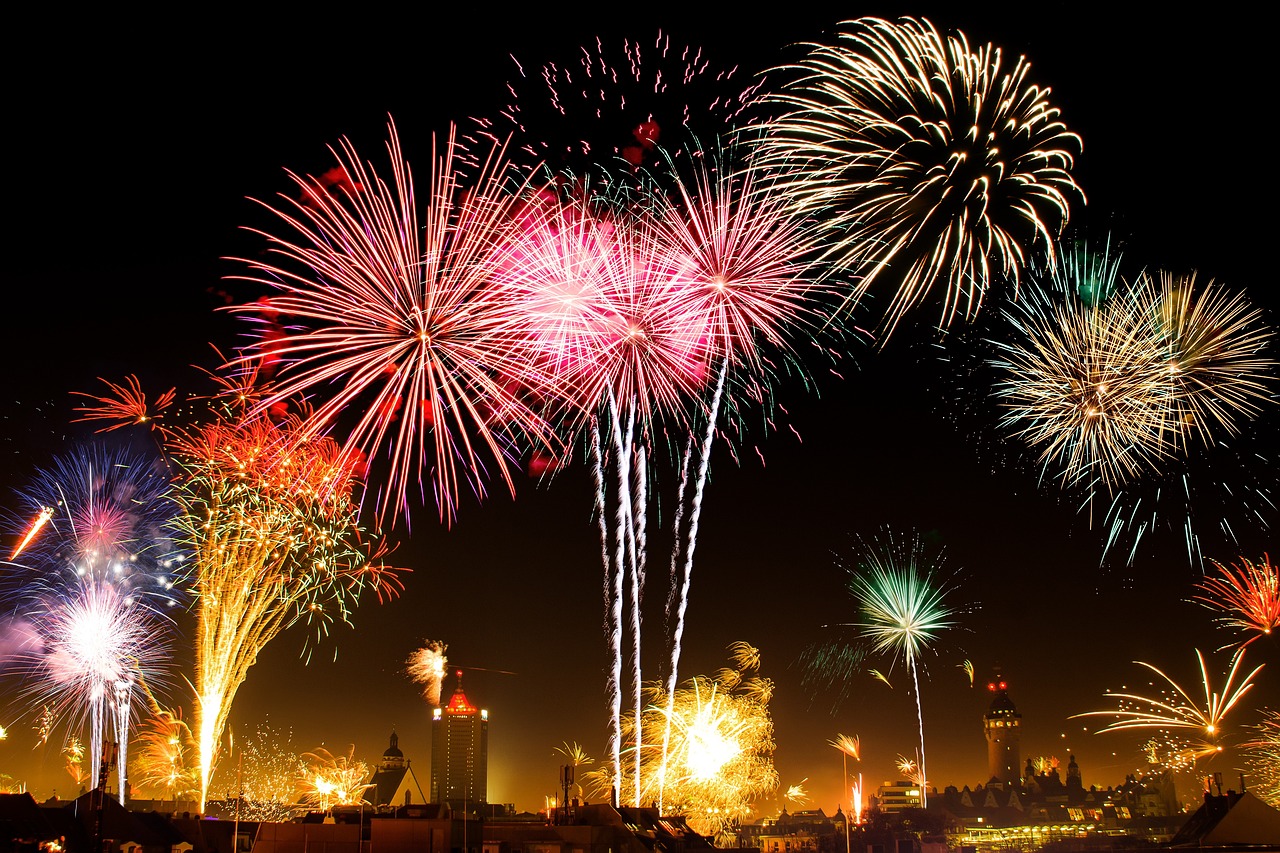The Magic of Diwali - India's Festival of Lights
Diwali, known as the Festival of Lights, is a spectacular and joyous celebration that holds immense cultural significance in India and beyond. The festival illuminates the darkness with its vibrant lights, symbolizing the victory of light over darkness and good over evil. Diwali is a time of immense joy and festivity, bringing communities together in a spirit of unity and merriment.
During Diwali, homes and streets are adorned with colorful decorations, and earthen lamps known as diyas are lit to welcome the goddess Lakshmi, the bringer of prosperity and wealth. The air is filled with the sounds of fireworks and the aroma of delicious sweets and savories prepared for the occasion. Families come together to exchange gifts, share meals, and create lasting memories.
The festival of Diwali is steeped in ancient traditions and customs that have been passed down through generations. Rangoli art, intricate patterns made with colored powders or flower petals, adorns entrances to homes as a symbol of welcome and good luck. Fireworks displays light up the night sky, adding to the festive atmosphere and creating a sense of awe and wonder.
Diwali is not just a festival; it is a time of spiritual reflection and renewal. It is a time to cleanse the mind and spirit, to let go of past grievances, and to start anew with a sense of hope and positivity. The lighting of lamps during Diwali signifies the dispelling of ignorance and the awakening of inner light and knowledge.
As the world embraces modernity, Diwali celebrations have also evolved to incorporate contemporary practices. From eco-friendly initiatives promoting a greener festival to virtual gatherings connecting families across the globe, Diwali continues to adapt and thrive in the digital age. Innovative decorations, online shopping trends, and digital greetings have become integral parts of the modern Diwali experience.
Diwali's magic transcends borders, with people of diverse cultures and backgrounds joining in the celebration of light and love. The festival's global observance showcases the power of unity and diversity, as communities around the world come together to partake in the joyous festivities and traditions of Diwali.
Experience the enchanting allure of Diwali, where lights dance, hearts unite, and spirits soar in a symphony of colors and joy. Let the magic of Diwali illuminate your life with warmth, happiness, and prosperity, spreading light and love to all those around you.

History and Origins
Diwali, also known as Deepavali, is one of the most significant festivals in Hindu culture, celebrated with immense zeal and enthusiasm across India and various parts of the world. Its history and origins are deeply rooted in ancient mythology and historical events that have shaped the festival into what it is today.
The origins of Diwali can be traced back to different stories and legends, with one of the most popular being the return of Lord Rama to Ayodhya after 14 years of exile and his victory over the demon king Ravana. The lighting of diyas and fireworks during Diwali symbolizes the triumph of light over darkness and good over evil, echoing the epic tale of Rama's homecoming.
Another legend associated with Diwali is the story of Lord Krishna defeating the demon Narakasura, freeing the world from his tyranny and bringing joy and prosperity to the people. This victory is commemorated during the festival through various rituals and prayers.
Historically, Diwali also marks the end of the harvest season and the beginning of the new financial year in India. It is a time for families to come together, exchange gifts, and seek blessings for prosperity and success in the coming year. The festival holds immense cultural and spiritual significance, uniting people in joyous celebrations and acts of generosity.

Symbolism and Significance
Diwali, also known as the Festival of Lights, is a vibrant and joyous celebration that holds immense cultural significance in India and across the globe. The festival brings together families, friends, and communities to revel in the triumph of light over darkness, good over evil, and knowledge over ignorance.
At the heart of Diwali lies a rich tapestry of symbolism and significance that illuminates the essence of this auspicious occasion. The lighting of diyas (lamps) during Diwali symbolizes the victory of light over darkness and the inner spiritual awakening that dispels ignorance and ushers in knowledge.
Rangoli art, intricate patterns created using colored powders, rice, or flower petals, adorns doorsteps and courtyards during Diwali, symbolizing welcome, prosperity, and the beauty of life's impermanence.
Fireworks displays during Diwali represent the jubilant celebration of life and the triumph of good over evil, filling the night sky with bursts of color and light that mirror the festive spirit of the occasion.
Feasting on festive sweets and savory dishes during Diwali signifies the sharing of joy, abundance, and goodwill with loved ones, neighbors, and those in need, fostering a sense of unity and generosity within communities.
The exchange of gifts and greetings during Diwali embodies the spirit of gratitude, love, and respect, strengthening bonds and fostering harmony among individuals and families.
Overall, the symbolism and significance of Diwali encapsulate a profound message of hope, renewal, and the enduring power of light to dispel darkness and illuminate our hearts and homes with warmth and joy.

Traditional Practices
During Diwali, several traditional practices are observed that hold deep cultural and spiritual significance. One of the most iconic customs is the lighting of diyas, small oil lamps made from clay, which symbolize the triumph of light over darkness and good over evil. These diyas are placed around homes, temples, and other spaces to illuminate them and create a warm, welcoming atmosphere.
Rangoli art is another integral part of Diwali celebrations. These intricate and colorful designs made using colored powders, flowers, or rice are created on the floors of homes to welcome the goddess Lakshmi, who is believed to bring prosperity and good fortune. The vibrant patterns and motifs of rangoli symbolize unity, harmony, and the beauty of life.
Fireworks displays are a common sight during Diwali, with the night sky illuminated by dazzling lights and loud crackers. The fireworks are not only a visual spectacle but also serve as a way to ward off evil spirits and celebrate the victory of light. However, in recent years, there has been a growing awareness about the environmental impact of fireworks, leading to calls for more eco-friendly alternatives.
Feasting on festive sweets is a delicious tradition during Diwali. Families prepare an array of mouth-watering treats such as ladoos, barfis, and jalebis to share with loved ones and guests. These sweets symbolize the sweetness of life and the joy of togetherness, reinforcing the spirit of generosity and hospitality that defines the festival.
Additionally, exchanging gifts and offering prayers to the deities are common practices during Diwali. Families visit temples to seek blessings for prosperity and well-being, while also expressing gratitude for the blessings received. The spirit of giving and sharing during Diwali reflects the values of compassion, kindness, and community bonding that lie at the heart of this vibrant festival.

Regional Variations
When it comes to Diwali, the festival of lights, one cannot ignore the rich tapestry of regional variations that add a unique flavor to the celebrations across India. Each region in the country brings its own set of customs, traditions, and culinary delights to the festive table, making Diwali a truly diverse and colorful affair.
In the northern states of India, such as Punjab and Uttar Pradesh, Diwali is synonymous with grandeur and opulence. Homes are adorned with intricate rangoli designs, and the night sky is ablaze with spectacular fireworks displays. Families come together to prepare traditional delicacies like gujiya and mathri, adding a touch of sweetness to the festivities.
Conversely, in the southern states like Tamil Nadu and Karnataka, Diwali is celebrated with a focus on spirituality and devotion. People wake up early for ritualistic oil baths and visit temples to seek blessings for prosperity and well-being. The lighting of kuthu vilakku (traditional lamps) in homes symbolizes the triumph of light over darkness.
Heading to the western region of India, particularly in Maharashtra and Gujarat, Diwali takes on a vibrant and lively atmosphere. The tradition of Govardhan Puja is observed, where intricate cow dung sculptures are made to honor Lord Krishna. Families engage in spirited dandiya and garba dances, adding a festive rhythm to the celebrations.
Lastly, in the eastern states like West Bengal and Odisha, Diwali coincides with the worship of Goddess Kali during the Kali Puja festivities. Elaborate rituals are performed to invoke the fierce yet benevolent energy of the goddess, and offerings of rice pudding are made to seek her protection and blessings.

Modern Adaptations
Modern Adaptations of Diwali have seen a fascinating evolution in recent years, reflecting the changing times and values of contemporary society. One notable shift is the growing emphasis on eco-friendly initiatives, with many individuals and communities opting for sustainable practices during the festival. From using organic materials for decorations to promoting the use of eco-friendly fireworks, there is a conscious effort to reduce the environmental impact of Diwali celebrations.
Furthermore, the rise of technology has revolutionized the way Diwali is observed and shared. Virtual gatherings have become increasingly popular, allowing families and friends separated by distance to come together and celebrate the festival online. Social media platforms are abuzz with Diwali greetings, photos of festive decorations, and videos capturing the spirit of the occasion, creating a digital tapestry of lights and colors that transcends geographical boundaries.
Innovative decorations have also become a hallmark of modern Diwali celebrations, with individuals showcasing their creativity through unique lighting arrangements, themed displays, and artistic installations. The use of LED lights, smart home technology, and interactive designs has added a contemporary flair to traditional Diwali decor, transforming homes and public spaces into mesmerizing showcases of light and beauty.

Global Observance
Diwali, known as the Festival of Lights, holds a special place in the hearts of not only Indians but also people around the world. The global observance of Diwali showcases the universal appeal and significance of this joyous celebration. From the bustling streets of Mumbai to the skyscrapers of New York City, the spirit of Diwali transcends borders and cultures, uniting people in a shared sense of light and hope.
Indian diaspora communities play a significant role in spreading the essence of Diwali to every corner of the globe. Whether it's through vibrant cultural events, traditional music and dance performances, or colorful street parades, Diwali brings a touch of India to foreign lands. The sight of diyas illuminating homes, the sound of firecrackers filling the air, and the aroma of festive sweets wafting through the streets create a sensory experience that resonates with people of diverse backgrounds.
Businesses and organizations worldwide have also embraced Diwali as a time for celebration and goodwill. From corporate offices adorned with colorful decorations to multinational companies hosting Diwali-themed events, the festival has become a symbol of unity and diversity in the global business community. The exchange of gifts, the sharing of traditional delicacies, and the spirit of generosity during Diwali foster a sense of camaraderie and mutual respect among colleagues and clients.

Diwali Traditions in the Digital Age
As Diwali, the festival of lights, has evolved over time, it has also embraced the digital age, transforming traditional practices into modern celebrations infused with technology and social media. In today's fast-paced world, the observance of Diwali has taken on new dimensions, blending age-old customs with innovative digital trends.
One of the significant impacts of the digital age on Diwali traditions is the rise of virtual celebrations. With the advent of video calls and live streaming platforms, families separated by distance can now come together virtually to light diyas, exchange greetings, and share the festive spirit despite being miles apart.
Moreover, online shopping has revolutionized the way people prepare for Diwali. E-commerce platforms offer a plethora of options for purchasing traditional attire, home decorations, and festive sweets with just a few clicks, making the Diwali shopping experience more convenient and accessible than ever before.
Another notable trend in the digital age is the prevalence of digital greetings and messages. Social media platforms are flooded with colorful Diwali wishes, animated e-cards, and festive emojis during the festival season, allowing people to convey their heartfelt greetings and good wishes to friends and family with a simple post or message.
Furthermore, technology has paved the way for innovative decorations and virtual experiences during Diwali. From augmented reality rangoli apps to LED light decorations synced with music, modern Diwali celebrations are embracing cutting-edge technology to create mesmerizing visual spectacles that captivate both young and old alike.
In essence, the digital age has not only added a new layer of excitement and creativity to Diwali traditions but has also enabled people to connect and celebrate the festival in novel ways, transcending physical boundaries and bringing the essence of Diwali to the digital realm.
Frequently Asked Questions
- What is the significance of Diwali?
Diwali holds great spiritual and cultural significance as it symbolizes the victory of light over darkness and good over evil. It is a time for family gatherings, feasting, and spreading joy and positivity.
- How is Diwali celebrated?
Diwali is celebrated with the lighting of diyas (lamps) to illuminate homes and streets, creating intricate rangoli designs, enjoying fireworks displays, exchanging gifts, and indulging in delicious sweets and savories.
- Are there variations in how Diwali is celebrated?
Yes, Diwali traditions vary across different regions of India, with each area having its unique customs and rituals. From the types of sweets prepared to the specific deities worshipped, the festival showcases the rich diversity of Indian culture.
- How has technology impacted Diwali celebrations?
Technology has influenced Diwali celebrations by enabling virtual gatherings, online shopping for festive items, and sending digital greetings to loved ones. The digital age has added new dimensions to how people observe and enjoy the festival.
- Why is Diwali known as the Festival of Lights?
Diwali is often referred to as the Festival of Lights because of the tradition of lighting oil lamps and candles to symbolize the triumph of light over darkness and the dispelling of ignorance with knowledge and wisdom.



















